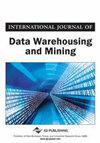多版本数据仓库中的模式演化
IF 0.7
4区 计算机科学
Q4 COMPUTER SCIENCE, SOFTWARE ENGINEERING
International Journal of Data Warehousing and Mining
Pub Date : 2021-10-01
DOI:10.4018/ijdwm.2021100101
引用次数: 0
摘要
数据仓库(dw)的内容和模式都会随着用户需求、业务流程或外部来源的变化而变化。尽管已经提出了使用时态和/或多版本dw的多种方法来处理这些更改,但仍然缺乏有效的解决方案。作者的方法是分离关注点并使用时态dw来处理内容更改,使用多版本dw来处理模式更改。为了解决前者,之前,他们提出了一个时间多维(MD)模型。在本文中,他们提出了一个多版本的模式演化模型来解决后一个问题。这两个模型相互补充,并允许管理内容和模式演变。本文给出了用于派生各种模式版本的模式修改操作符的语义。还展示了联机分析处理(OLAP)操作(如上卷)如何在模型上工作。最后,给出了从多版本MD模型到关系模式的映射,以及标准SQL中的OLAP操作。本文章由计算机程序翻译,如有差异,请以英文原文为准。
Schema Evolution in Multiversion Data Warehouses
Data warehouses (DWs) evolve in both their content and schema due to changes of user requirements, business processes, or external sources to name a few. Although multiple approaches using temporal and/or multiversion DWs have been proposed to handle these changes, an efficient solution for this problem is still lacking. The authors' approach is to separate concerns and use temporal DWs to deal with content changes, and multiversion DWs to deal with schema changes. To address the former, previously, they have proposed a temporal multidimensional (MD) model. In this paper, they propose a multiversion MD model for schema evolution to tackle the latter problem. The two models complement each other and allow managing both content and schema evolution. In this paper, the semantics of schema modification operators (SMOs) to derive various schema versions are given. It is also shown how online analytical processing (OLAP) operations like roll-up work on the model. Finally, the mapping from the multiversion MD model to a relational schema is given along with OLAP operations in standard SQL.
求助全文
通过发布文献求助,成功后即可免费获取论文全文。
去求助
来源期刊

International Journal of Data Warehousing and Mining
COMPUTER SCIENCE, SOFTWARE ENGINEERING-
CiteScore
2.40
自引率
0.00%
发文量
20
审稿时长
>12 weeks
期刊介绍:
The International Journal of Data Warehousing and Mining (IJDWM) disseminates the latest international research findings in the areas of data management and analyzation. IJDWM provides a forum for state-of-the-art developments and research, as well as current innovative activities focusing on the integration between the fields of data warehousing and data mining. Emphasizing applicability to real world problems, this journal meets the needs of both academic researchers and practicing IT professionals.The journal is devoted to the publications of high quality papers on theoretical developments and practical applications in data warehousing and data mining. Original research papers, state-of-the-art reviews, and technical notes are invited for publications. The journal accepts paper submission of any work relevant to data warehousing and data mining. Special attention will be given to papers focusing on mining of data from data warehouses; integration of databases, data warehousing, and data mining; and holistic approaches to mining and archiving
 求助内容:
求助内容: 应助结果提醒方式:
应助结果提醒方式:


